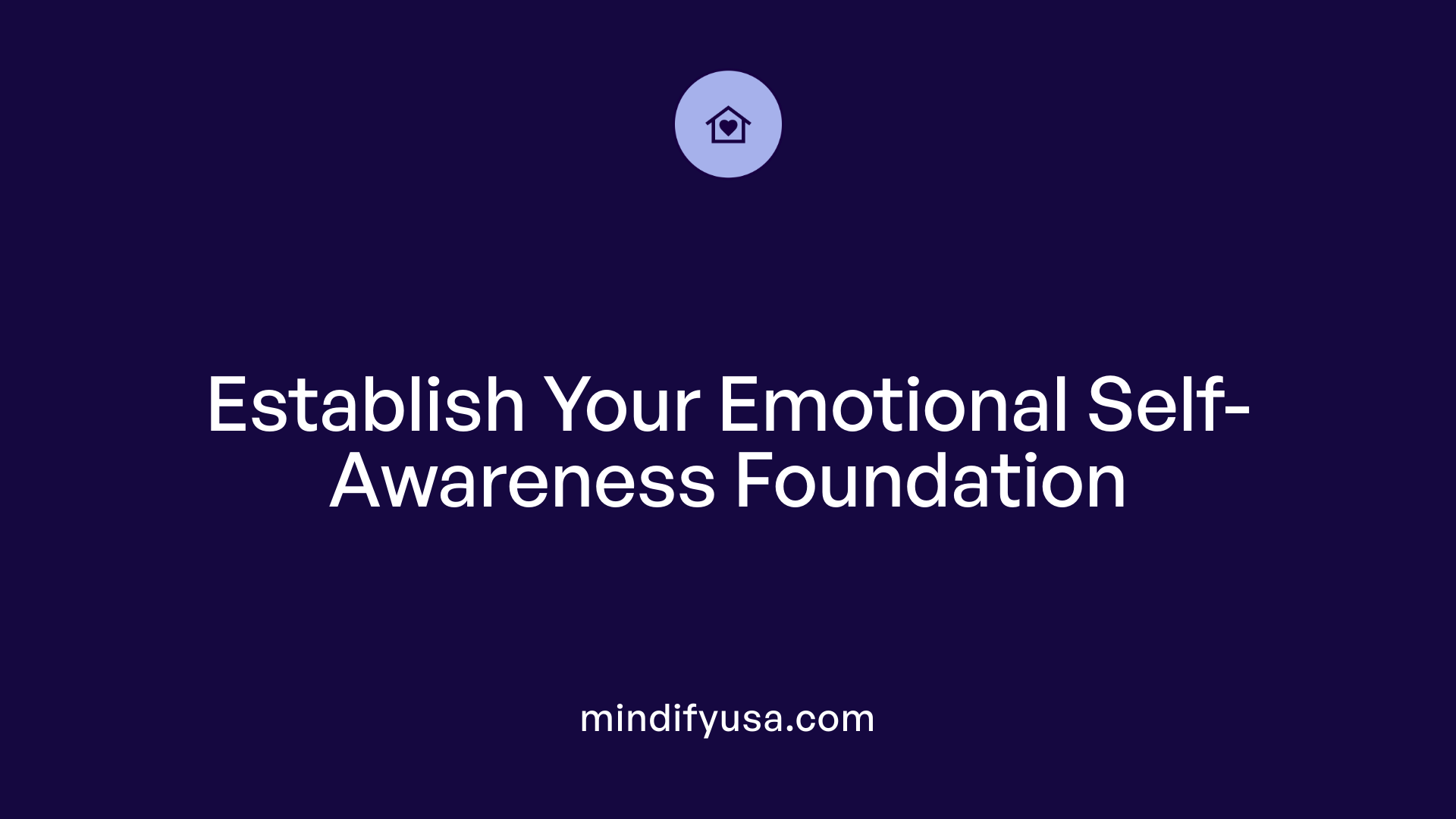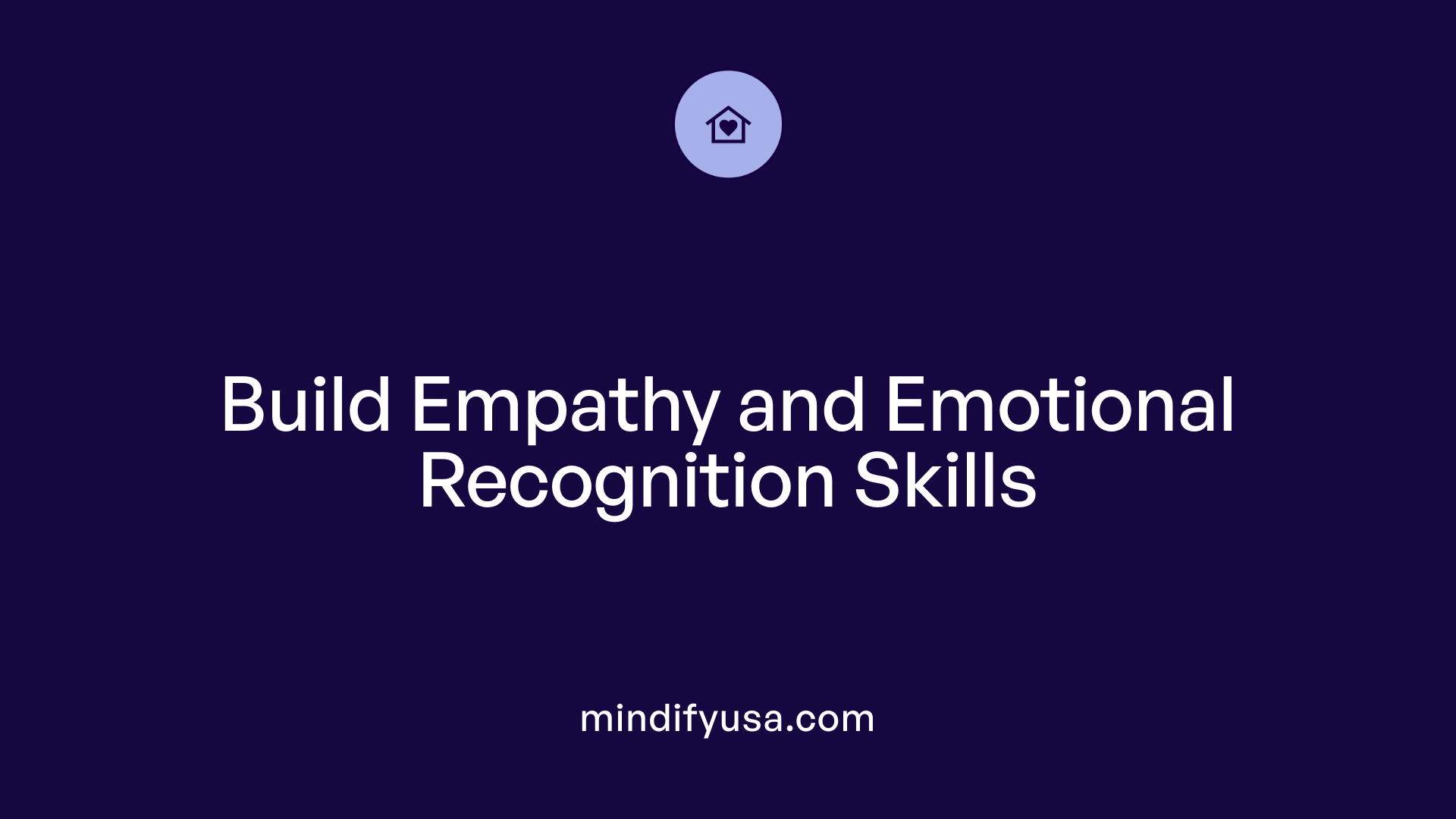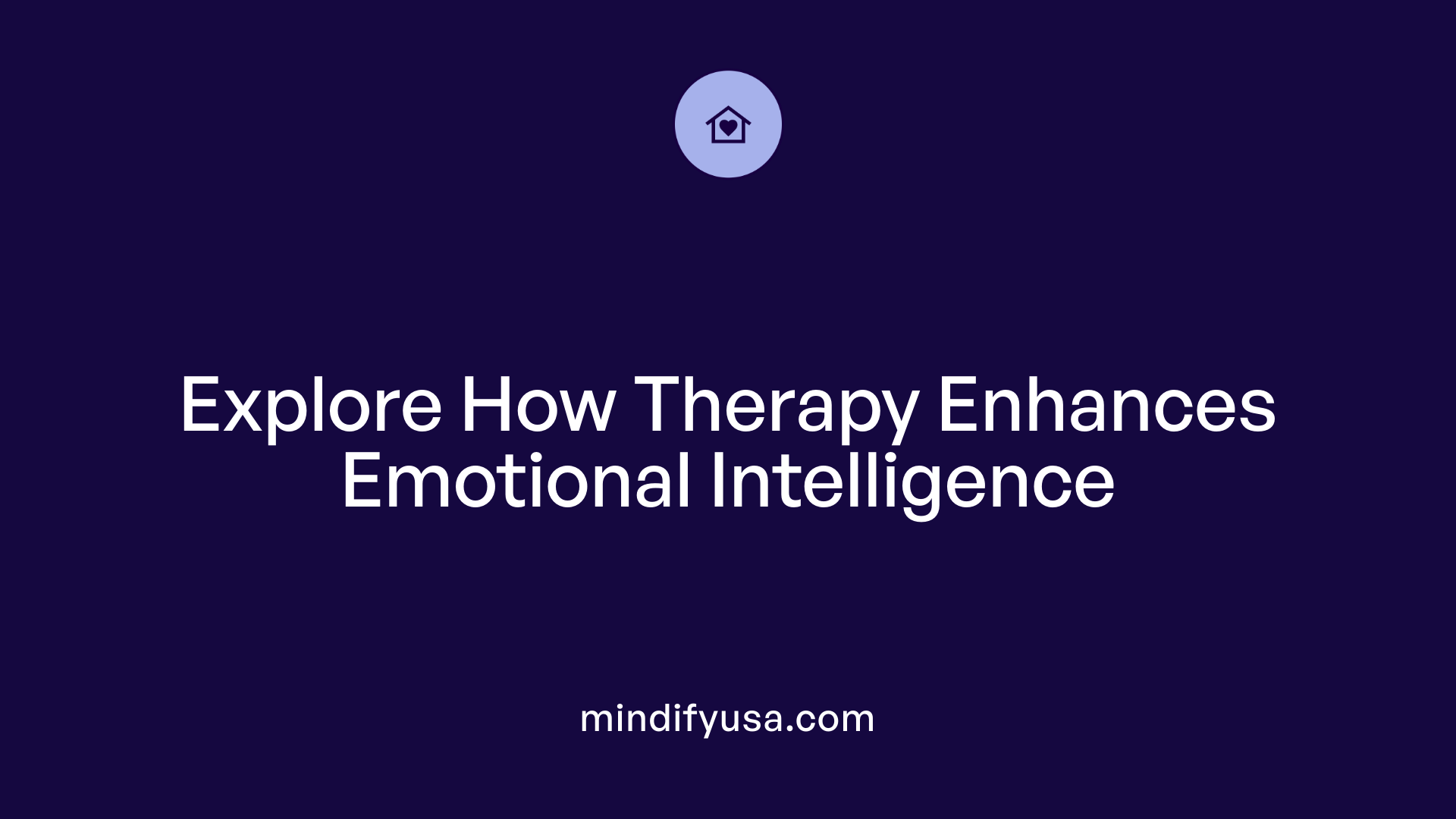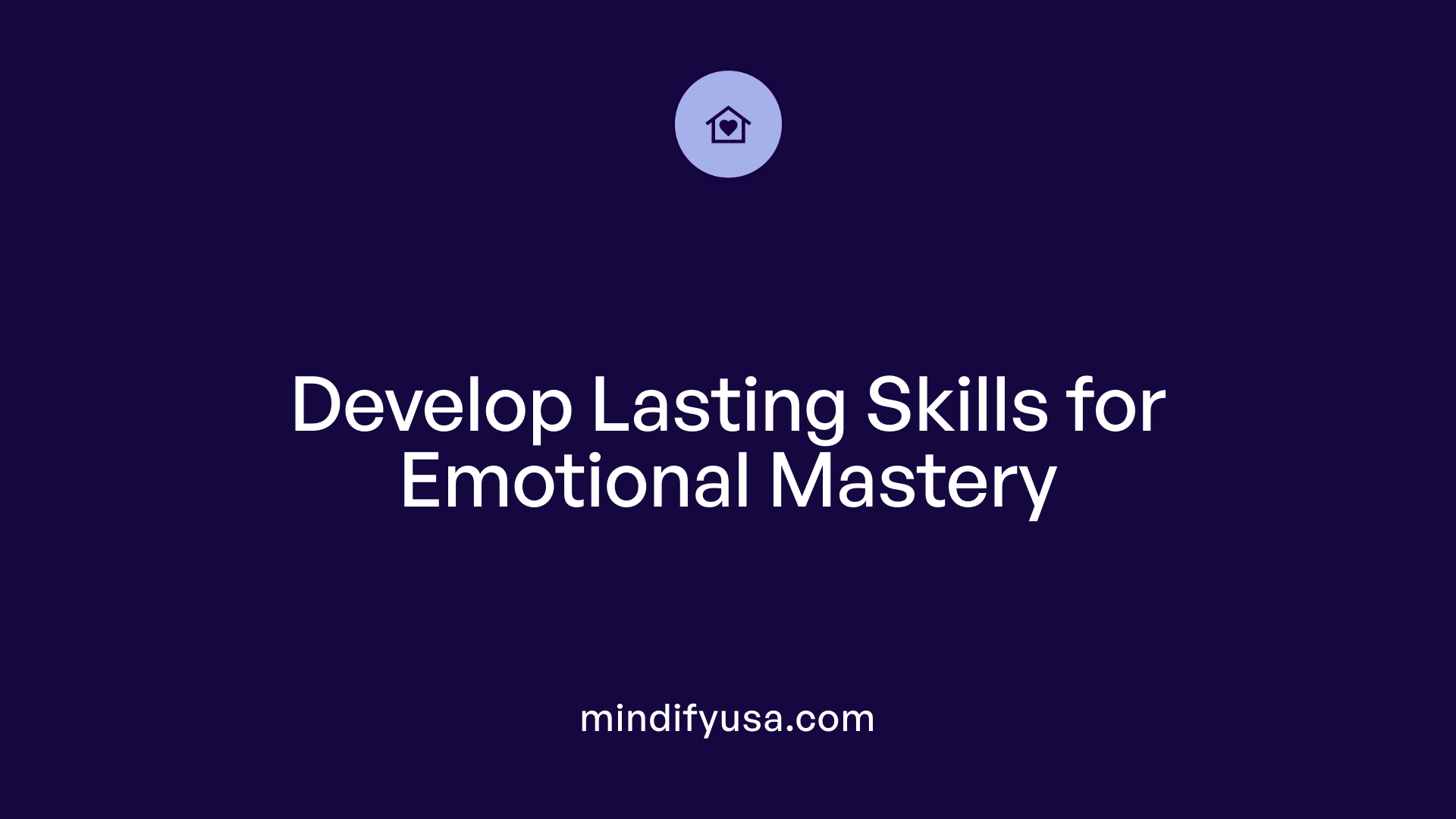The Power of Therapy in Building Emotional Intelligence
Emotional intelligence (EI) is a fundamental component of mental health and personal success. Therapy, serving as a structured and supportive environment, plays a crucial role in enhancing various facets of EI, including self-awareness, emotional regulation, and empathy. This article explores how different therapeutic approaches develop these skills, the techniques involved, and the profound benefits that emerge when therapy becomes a catalyst for emotional growth.
Creating a Foundation for Emotional Self-Awareness

How does therapy offer a secure environment for emotional exploration?
Therapy provides a confidential and supportive space where individuals feel safe to share their innermost thoughts and feelings. This environment encourages openness, allowing clients to delve into their emotional experiences without fear of judgment.
In what ways does therapy assist clients in recognizing and labeling their emotions?
Therapy techniques often focus on improving emotional vocabulary and awareness. Through guided exercises, clients learn to identify specific emotions such as anger, sadness, or anxiety. This clear labeling helps them understand what they are feeling and why, forming a vital part of emotional intelligence.
Why is self-awareness considered a key element of emotional intelligence?
Self-awareness involves recognizing one's own emotions and understanding their impact on thoughts and behaviors. It acts as the foundation for emotional regulation, empathy, and effective interpersonal skills. Therapy enhances this self-awareness by encouraging reflections on emotional responses and uncovering underlying causes.
How does therapy improve emotional intelligence?
Yes, therapy can significantly improve emotional intelligence by helping individuals increase self-awareness, manage emotions effectively, and develop empathy. Techniques such as Cognitive Behavioral Therapy (CBT) and Acceptance and Commitment Therapy (ACT) are particularly effective in identifying negative thought patterns, reframing emotions, and building healthier emotional responses.
A mental health professional provides a safe environment to explore feelings, improve emotional vocabulary, and learn practical skills for emotional regulation and relationship management. Additionally, therapy supports developing emotional stability, which complements and enhances emotional intelligence. Overall, with consistent practice and professional guidance, therapy can lead to substantial growth in emotional intelligence and better overall well-being.
More information
To explore further, search for: "Therapy builds emotional self-awareness and labeling skills."
Developing Emotional Recognition and Empathy

How can therapy support the development of emotional intelligence?
Therapy plays a vital role in enhancing emotional intelligence by creating a secure environment where individuals can freely explore their feelings, thoughts, and behaviors. This safe space allows for increased self-awareness—an essential component of emotional intelligence—by encouraging clients to recognize and understand their emotional patterns and triggers.
One of the primary ways therapy boosts emotional recognition is through specific techniques like mindfulness and emotional regulation exercises. Mindfulness practices such as grounding exercises and breathing techniques help individuals stay present with their emotions without judgment, fostering a deeper understanding of their emotional landscape. Cognitive strategies like restructuring negative thoughts or reframing emotional responses also aid in better emotional regulation.
Role-playing and active listening within therapy sessions provide practical platforms for developing empathy and effective communication skills. When clients practice empathetic responses and receive feedback, they learn to interpret emotional cues more accurately and respond with understanding. Different therapeutic approaches—such as Cognitive-Behavioral Therapy (CBT), Mindfulness-Based Therapy, and Psychodynamic Therapy—address various facets of emotional functioning. CBT targets negative thought patterns, enhancing emotional awareness, while psychodynamic therapy unpacks unconscious emotional conflicts rooted in past experiences.
Engaging in therapy not only promotes personal growth but also significantly improves interpersonal skills. Clients become better equipped to resolve conflicts, communicate their needs clearly, and connect more authentically with others. These enhanced abilities ultimately strengthen their social awareness and empathy.
In summary, therapy supports emotional intelligence development by providing tools for recognizing emotions, managing reactions effectively, and deepening empathy. Through ongoing practice and insightful feedback, individuals develop resilience and relational skills that benefit personal and professional relationships—leading to a more emotionally aware, fulfilled life.
| Technique/Approach | Focus Area | Impact on Emotional Intelligence |
|---|---|---|
| Mindfulness Exercises | Emotional awareness & regulation | Cultivates present-moment awareness, reduces impulsivity |
| Cognitive Restructuring | Thought patterns | Reframes negative beliefs, enhances emotional control |
| Role-Playing | Empathy & communication | Builds empathetic responses and social skills |
| CBT | Thought & emotion management | Addresses negative thinking, improves emotional recognition |
| Psychodynamic Therapy | Unconscious processes | Increases self-awareness of deep-seated emotional patterns |
Expanding skills in emotional recognition and empathy through therapy results in healthier relationships, better conflict management, and overall emotional well-being, enriching one's personal and social life.
Techniques for Cultivating Emotional Regulation Skills
Therapy offers various effective techniques to help individuals strengthen their ability to manage and regulate emotions. These strategies focus on increasing awareness of emotional responses and developing healthier ways to cope with stress and challenging feelings.
One foundational approach is mindfulness and meditation practices. Techniques such as mindful breathing, body scans, and grounding exercises promote present-moment awareness. This mindfulness helps individuals recognize emotional triggers early and respond with greater calmness and clarity, reducing reactive behaviors.
Cognitive restructuring is another vital tool used in therapy. It involves identifying negative or distorted thought patterns and challenging them with evidence-based reappraisal. By changing perspectives on stressful situations, clients can alter their emotional responses, fostering resilience and more adaptive reactions.
Acceptance and Commitment Therapy (ACT) incorporates specific techniques that emphasize accepting difficult emotions without judgment while committing to actions aligned with personal values. ACT teaches mindfulness skills combined with acceptance strategies, helping individuals respond thoughtfully to their thoughts and feelings instead of fighting or avoiding them.
The combined use of these techniques helps build a robust emotional toolkit. Clients learn to observe their emotions, understand the underlying causes, and choose responses that promote emotional stability and well-being. Regular practice of these methods can lead to long-term improvements in emotional regulation, stress management, and overall mental health.
Therapeutic Approaches and Their Impact on Emotional Growth

What mechanisms do therapies like CBT, mindfulness-based therapy, and psychodynamic therapy use to develop emotional intelligence?
Different therapeutic methods operate through distinct mechanisms to enhance emotional intelligence. Cognitive-Behavioral Therapy (CBT) focuses on identifying and reshaping negative thought patterns that influence emotional responses. By recognizing these cognitive distortions, clients learn to manage emotions more effectively and develop better self-awareness. Mindfulness-based therapies, such as Mindfulness-Based Stress Reduction (MBSR), cultivate present-moment awareness and acceptance. Regular mindfulness practice helps clients observe their emotions without judgment, fostering emotional regulation and resilience. Psychodynamic therapy delves into unconscious processes and past experiences, helping individuals uncover underlying emotional patterns rooted in childhood or past relationships. By bringing these unconscious influences into conscious awareness, clients gain insight into their emotional triggers and develop healthier responses.
How do these approaches address thought patterns and unconscious processes?
Addressing thought patterns involves techniques that challenge and reframe unhelpful beliefs, as seen in CBT. Clients learn to identify automatic negative thoughts and replace them with positive or realistic alternatives. This restructuring improves emotional regulation and self-control. When it comes to unconscious processes, psychodynamic therapy works by exploring hidden motivations, unresolved conflicts, and early life experiences that shape current emotional responses. This deep exploration allows individuals to understand the roots of their feelings and behaviors, leading to greater self-awareness and emotional maturity.
In what ways do therapy techniques foster resilience and emotional maturity?
Therapies foster resilience by teaching coping skills such as stress management, emotional regulation strategies, and problem-solving skills. Techniques like mindfulness and cognitive restructuring empower clients to handle stressors more adaptively, reducing emotional reactivity. Regular practice of these skills builds emotional strength over time, enabling individuals to bounce back from setbacks. Additionally, therapy promotes emotional maturity by encouraging self-acceptance, empathy, and effective communication. Through role-playing, reflective exercises, and active listening, clients develop greater empathy and social awareness. This ongoing growth helps people navigate complex social dynamics with patience and understanding, ultimately leading to enhanced emotional intelligence and a more resilient, emotionally balanced outlook.
| Approach | Focus | Technique | Impact on Emotional Growth |
|---|---|---|---|
| CBT | Thought patterns | Cognitive restructuring, journaling | Improves emotional regulation, awareness |
| Mindfulness-based therapy | Present-moment awareness | Meditation, grounding exercises | Enhances emotional acceptance, resilience |
| Psychodynamic | Unconscious patterns | Exploration of past experiences | Fosters insight, deep emotional understanding |
By integrating these methods, therapy offers comprehensive support for emotional development, ultimately leading to healthier relationships, better stress management, and increased overall well-being.
The Long-term Benefits of Enhanced Emotional Intelligence
What are the benefits of using therapy to enhance emotional intelligence?
Therapy plays a significant role in fostering long-term improvements in emotional intelligence (EI). It creates a safe and nurturing space where individuals can deeply explore their emotional landscape, helping them identify and understand their feelings, triggers, and thought patterns.
By engaging in various therapeutic techniques such as mindfulness, cognitive restructuring, and role-playing exercises, clients learn to regulate their emotions and develop stronger empathy and communication skills. Different therapeutic approaches like Cognitive-Behavioral Therapy (CBT), mindfulness-based therapy, and psychodynamic therapy target specific EI components such as self-awareness, emotional regulation, and social skills.
As a result, individuals often experience decreased mental health symptoms and greater resilience to stress. These improvements translate into healthier relationships, both personally and professionally, and a higher overall quality of life.
The growth in emotional intelligence gained through therapy extends beyond immediate emotional management. It significantly enhances one's capacity to connect with others, understand different perspectives, and handle conflicts effectively. Consequently, individuals enjoy deeper social bonds, improved teamwork, and better leadership abilities.
Overall, therapy not only supports the immediate development of important emotional skills but also sets a foundation for sustained personal and relational growth. The long-term benefits include reduced anxiety and depression, increased life satisfaction, and an enhanced sense of well-being, demonstrating how therapy’s impact on emotional intelligence can be profound and enduring.
Building Skills for Future Emotional Success
 Maintaining and enhancing emotional intelligence is an ongoing journey that benefits greatly from consistent effort and practice. Techniques such as mindfulness, self-reflection, and seeking feedback serve as vital tools for nurturing emotional growth after therapy.
Maintaining and enhancing emotional intelligence is an ongoing journey that benefits greatly from consistent effort and practice. Techniques such as mindfulness, self-reflection, and seeking feedback serve as vital tools for nurturing emotional growth after therapy.
Mindfulness exercises, including meditation and grounding techniques, help individuals stay present and aware of their emotional states. Journaling and reflective questioning enable deeper understanding of personal reactions and emotional patterns. These practices foster self-awareness, allowing individuals to recognize their triggers and manage their responses more effectively.
Engaging in continuous personal and professional development is essential. This can involve participating in workshops, reading about emotional intelligence, or practicing communication skills in diverse settings. Such efforts reinforce the skills learned during therapy and help them become integrated into daily life.
The importance of sustained effort cannot be overstated. Emotional intelligence is not a fixed trait; it requires regular attention and practice. Over time, consistent application of emotional regulation techniques, empathy exercises, and reflective practices leads to lasting improvements.
How do therapeutic techniques contribute to emotional growth?
Therapeutic techniques like active listening, reflective questioning, role-playing, and mindfulness practices help clients articulate feelings, recognize triggers, and enhance emotional awareness. Regular psychotherapy sessions facilitate breakthroughs in emotional understanding, with therapists offering feedback and insights that help clients articulate and explore their feelings more effectively and accurately.
Techniques such as Cognitive-Behavioral Therapy (CBT) specifically address negative thought patterns, leading to better emotional regulation and awareness. Acceptance and Commitment Therapy (ACT) guides clients to respond to thoughts and feelings in ways aligned with their core values, fostering resilience and thoughtful responses.
Continued practice of emotional awareness, mindfulness, reflection, and seeking feedback are strategies that help sustain emotional intelligence improvements after therapy. By embedding these habits into daily routines, individuals can maintain emotional health, develop stronger relationships, and navigate life's challenges more successfully.
Therapy as a Lifelong Catalyst for Emotional Development
The journey to emotional intelligence is ongoing, and therapy serves as a vital catalyst in this process. By fostering self-awareness, emotional regulation, and empathy, therapeutic practices empower individuals to navigate their emotional landscapes with greater skill and confidence. The techniques and insights gained through therapy not only promote immediate emotional well-being but also lay the groundwork for lifelong emotional resilience, healthier relationships, and personal fulfillment. Sustained commitment to emotional growth, supported by the strategic tools and support systems provided in therapy, underscores its essential role in achieving emotional mastery and overall mental health.
References
- Unlocking Emotional Intelligence Through Therapy
- The Benefits of Therapy in Enhancing Emotional Intelligence
- Building Emotional Intelligence through Psychotherapy
- Impact of Therapy on Enhancing Emotional Intelligence
- Building Emotional Intelligence Through Therapy
- How Therapy Can Help Improve Emotional Intelligence
- Emotional Intelligence and Mental Health: A Pathway to Well-Being
- Therapy for Emotional Intelligence: The Path to Self-Awareness
- Emotional Intelligence: What It Is, Why It Is Important, Therapy
- EMOTIONAL INTELLIGENCE & THERAPY: The Keys to Living a ...






































































































